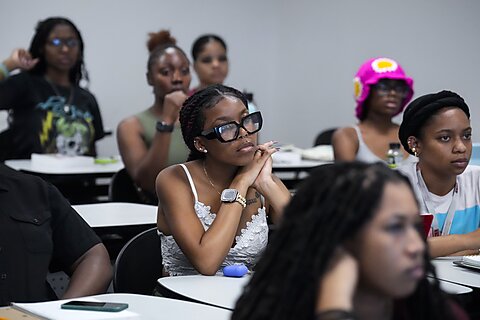Neal McCluskey and Colleen Hroncich
On May 17, 1954, something necessary but not sufficient for American liberty happened: The US Supreme Court struck down de jure racial segregation in public schools. After the Civil War ended legal prohibitions against black Americans receiving even basic literacy, finally Brown v. Board of Education took the next step, declaring forced government separation in public schools anathema. But that only brought African Americans up to a better but still unfree status quo—government-controlled education—and not real educational freedom.
Of course, the road from Supreme Court declaration to desegregation was not an easy one. Many southern states refused to comply with the ruling, and the concrete structures of centuries of rank governmental and social discrimination, from segregated housing to yawning economic inequality, remained firmly in place. And, yes, “freedom of choice,” in the form of supposed choice of public schools, and vouchers for students to attend segregated private schools as public schools were shuttered, were part of this resistance.
But choice—freedom—was not the enemy.
As desegregation proceeded, and especially as it turned to mandated integration through such means as compelled busing, many African Americans embraced choice not just to get the education they wanted for their children, but for the inherent good of self‐determination.
For one thing, African Americans lost a lot during desegregation. Compelled separation by race was repugnant but blacks had true community schools, not just with children from the community, but teachers and administrators as well. As one woman from Wilmington, North Carolina, reminisced about her once all‐black alma mater, “We were in a cocoon bathed in a warm fluid, where we were expected to excel.”
But when integration of the school was mandated, “We went from our own land to being tourists in someone else’s. It never did come together.” Meanwhile, tens of thousands of black educators lost their jobs, a process Horace Tate, long‐time head of the Black Georgia Teachers and Education Association, referred to as “outergration.” As “black schools” were closed, white administrators and, often, white politicians, took over.
White political majorities, just by size if not also entrenched power, exerted influence sufficient to control many integrated public schools. This, too, exasperated some African Americans. Indeed, no less a desegregation icon than Kenneth Clark, of the famous “doll test” integral to the Brown decision, called for the creation of myriad new, independent schools of choice to give black people power in education they could not exert in politically controlled, bureaucratic district schools.
Even today, some African Americans simply want to attend schools run by black people, staffed by black people, suffused with black culture, and serving black children. Indeed, many may resent what seemed to be the underlying academic assumption for mandated integration: for black children to learn, they must be in the same buildings as large numbers of white children. The refrain might be familiar: Who says that for black children to learn they must be sitting next to white children?
There’s good news for black families who are looking for different educational environments for their children. Inspired in part by the increase in black homeschoolers and in part by the expanding availability of school choice programs, education entrepreneurship in the black community is growing.
For example, Anthony Brock and his brother opened Valiant Cross Academy, an all‐male school in Montgomery, Alabama, in 2015. “It’s the birthplace of the civil rights movement. It’s also known as the cradle of the Confederacy,” Anthony explains. “There’s so much change happening right here in Montgomery. Right now we have 200,000 residents, and we’re averaging about 70 homicides a year. And most of those are African American males.” So he and his brother felt called to open a school that would reach young black men and put them on a better path.
The desire for community. The desire for empowerment rather than assignment to undesirable schools. Both likely explain why school choice, including independent charter schools and private choice vehicles, such as vouchers and education savings accounts, typically garner more support from African Americans than other racial and ethnic groups. They are also likely the reasons why black families disproportionately choose charter schools over conventional public schools.
Of course, many black families and children no doubt want to attend integrated schools and might well be very comfortable in the minority. And they should have the ability to seek that out unrestrained by the government. This is in keeping with what Brown helped to drive forward: freedom for African Americans.

